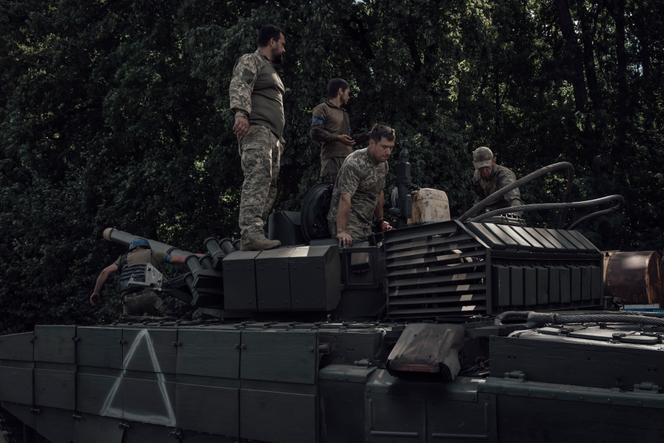


The well-planned Ukrainian army's incursion into the Kursk region highlighted the vulnerabilities of the Russian army and dealt a blow to the official narrative that the country was spared from hostilities. On Tuesday, August 6, thousands of Ukrainian soldiers crossed into Russian territory without encountering major resistance.
The checkpoints set up on the Russian side along the 245-kilometer border that the Kursk region shares with Ukraine were manned mainly by poorly trained conscripts from the border guards from the FSB (the Russian security service) and lightly equipped army infantry units.
The Ukrainians made their breakthrough with disconcerting ease. "It wasn't very hard," said Stéphane Audrand, an international risk consultant and reserve officer. "Since the spring of 2022, the northern border of the Donbas had been quiet, apart from a few small raids. So there were just two fairly simple lines of trenches, a few minefields and few men − a few hundred FSB and Russian National Guard personnel." The area, a no-man's-land five to 10 kilometers wide, was considered low-risk by Moscow. Meanwhile, all eyes were on the Donbas, where the fighting has been concentrated for months.
According to the military expert, the Ukrainian forces were able to enter with greater ease because their enemy had begun to clear the area of mines in preparation for an offensive. "For some time, the Russians had been quietly preparing an attack on Sumy [Ukraine] from the border zone. Demining had begun, but they hadn't massed any troops." Warned by drones and radar, the Ukrainians saw "an effect of opportunity" and decided to "pre-empt the attack" by launching themselves first, continued Audrand. "It's clever, they took the initiative again, whereas, since November 2023, Russia had been imposing its tempo."
The element of surprise was even more impactful because Moscow was convinced that Ukraine was not in a position to launch an attack and was instead focused on the Donbas and Crimea. Yet a few weeks before the incursion, Kyiv had massed thousands of soldiers in the Sumy region. Why didn't these movements catch the attention of Russian intelligence? "I can't believe [they] didn't know," said retired general Andrei Guruliev, vice president of the Defense Committee of the State Duma, Russia's lower house of parliament, speaking to the online media Svobodnaya Pressa on Monday, August 12.
This setback sheds a harsh light on the inner workings of Moscow's army high command. According to the Russian Telegram channels Rybar and VchK-OGPU, General Esedulla Abachev, in charge of border protection at Kursk, had reported an abnormal concentration of Ukrainian troops in the Sumy region to his superiors a few weeks ago. However, the general staff either didn't believe it or didn't want to believe it.
You have 56.97% of this article left to read. The rest is for subscribers only.
